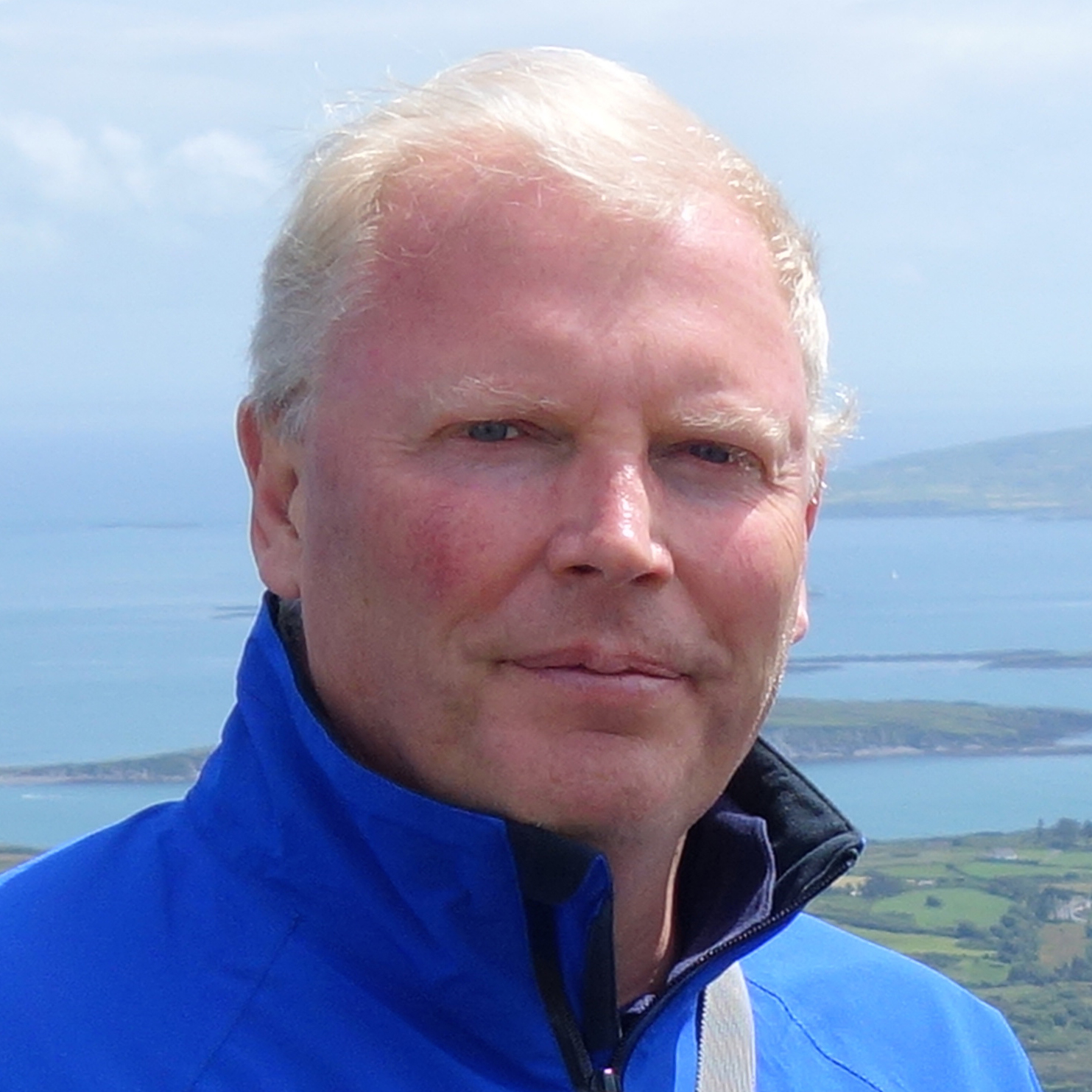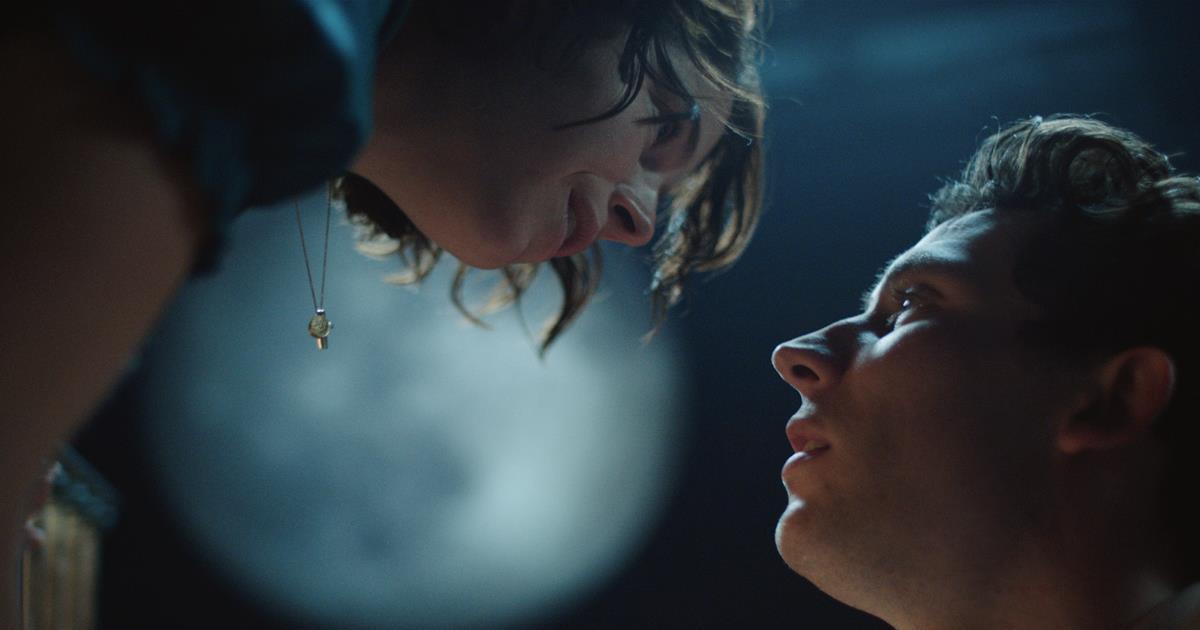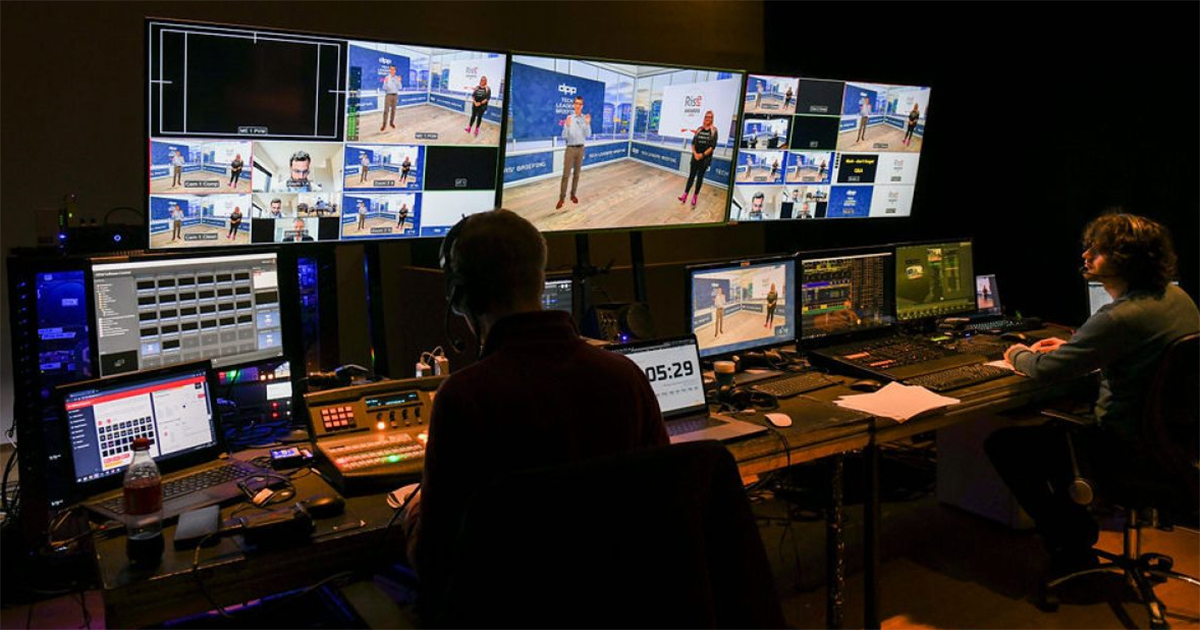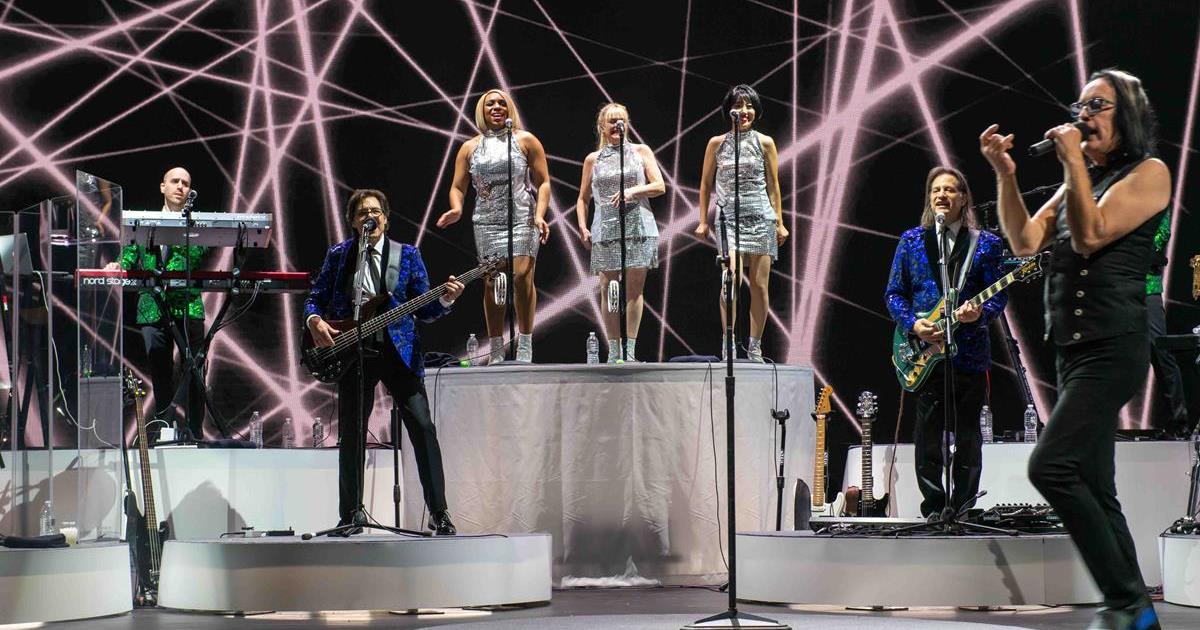
The 10-week “Clearly Human” Todd Rundgren tour was scheduled and rescheduled three times since March 2020 before landing on what was an innovative adaptation of a “road” tour, localized in Chicago but virtualized across 25 different stops in major US cities.
Each stop was curated to the look and feel of that city and included all the elements of a “normal” tour — an enormous video wall, lighting system, pyrotechnics and special effects — all of which required the same coordination as any major live music event.
After vetting several venues in the Chicago area, the band and crew were able to set up shop in Radius, a new live performance venue that had opened with two shows before closing again due to COVID. Ticket sales were available to fans with zip codes in that event’s greater metropolitan area, and the night of the show, they could see themselves on monitors throughout the venue, local landmarks took over the video wall, city-specific food was catered, venue names were front-and-center, clocks were reset, and the crew’s day sheets read ‘Welcome to Seattle’ or whichever stop was on the schedule that day.
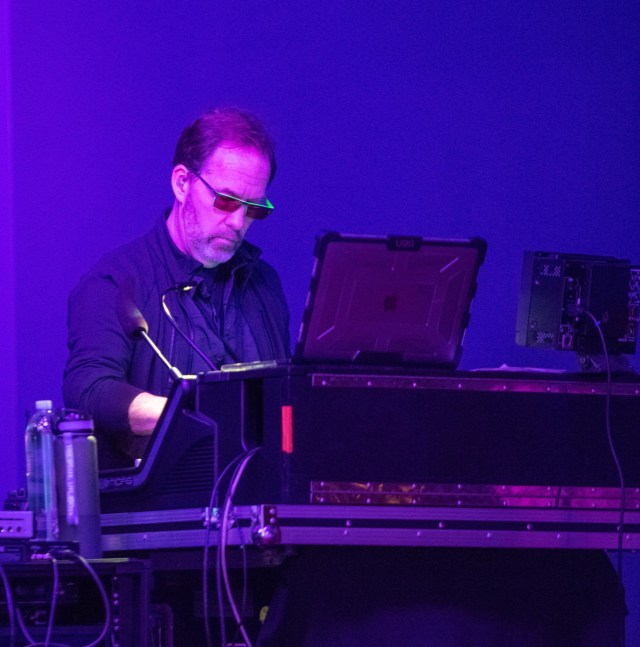
Although the shows were perhaps the closest thing to the real deal since early 2020, the restrictions brought about by COVID necessitated some key differences, including the need for an on-set COVID Compliance Officer (CCO), a role picked up by Rundgren’s longtime tour manager, production manager and monitor engineer Paul Froula.
“While we were based in Chicago for the entire run,” said Froula, “we localized in various cities and put up graphics and basically self-hypnotized ourselves into believing we were in Albany or New York City. It was pretty cool.
“We installed a ginormous video wall for this production and had a very large lighting and FX system — so it really needed to be a proper stage. As COVID Compliance Officer, I certainly had to abide by the rules of the State of Illinois, the County of Cook and the City of Chicago in terms of occupancy,” said Froula.
“My team was really spread out, with myself and five others in key positions. Given our distances, just screaming and trying to hear the radio wasn’t going to play. We realized right away that we needed to have comms, and so we reached out to TC Furlong in Chicago. The role of intercom during the pandemic certainly allows you that level of distancing you need to maintain. Adding a Clear-Com system just totally took the frustration level out and allowed us to focus in on the job in hand,” he said.
“With remote production becoming much more popular, the ability to have a key member of the team be part of the conversation from across town — or across the country, for that matter — becomes so much more important.”
— Paul Froula
To ensure smooth communication between production team members as well as to maintain appropriate social distancing requirements, the tour employed Clear-Com’s Encore Analog Partyline intercom system.
“Front-of-House, lighting, video, and stage right were located as far from each other as the venue would allow, with the broadcast engineer in a separate room off the main venue. The Encore system provided full-duplex, hands-free communication with optimal audio quality for users separated by greater-than-normal physical distances and challenged by the blaring nature of being at a live show. All production team members were also equipped with RS-501 belt packs and CC-95 single-muff headsets to ensure they did not miss a beat,” said Froula.

Todd Rundgren’s hybrid tour employed many live events industry personnel whose livelihoods were severely impacted by COVID restrictions and who had been away from the work they love for over a year. Rundgren has since been inducted into the Rock & Roll Hall of Fame, Class of 2021.
“We were seeing people that were like family, and because of muscle memory everything fell into place,” he said. “Everything was tight, the band was great, everyone was ready to go, and everyone loved it — fans, press, cast, crew, total success!”
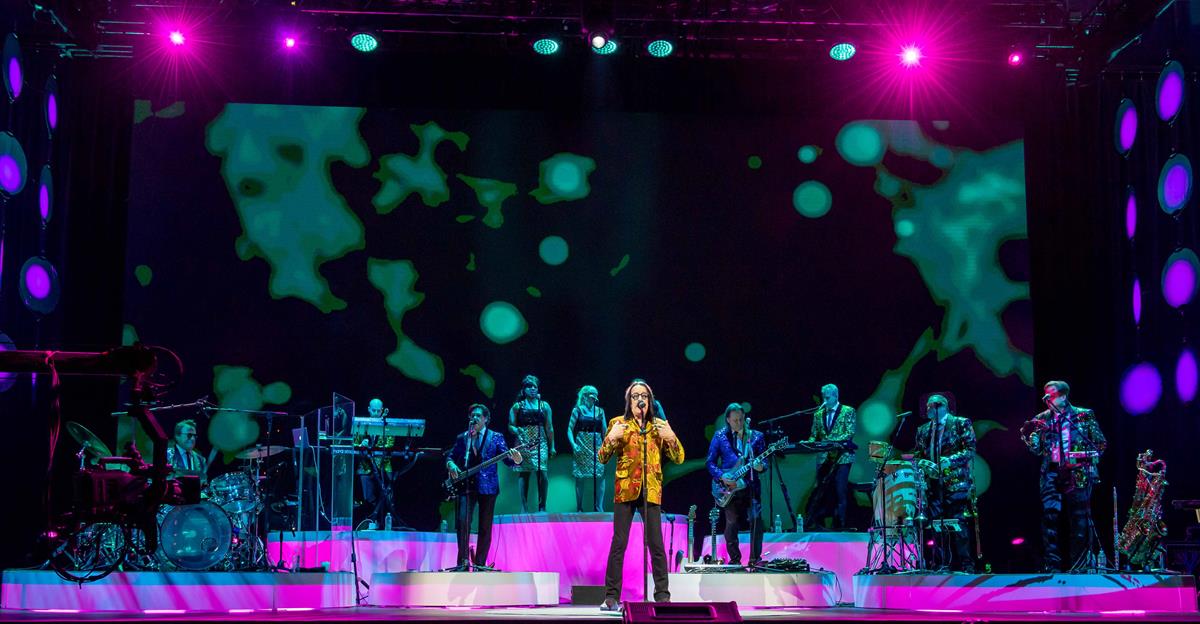
Froula envisions a bright future for the live sound industry, with a lot of activity on the horizon. While there are still questions about what concerts may look like in the future, it’s apparent that comms will be considered from the outset of any new production. “What I’m really interested in now are the IP solutions from Clear-Com. With remote production becoming much more popular, the ability to have a key member of the team be part of the conversation from across town — or across the country, for that matter — becomes so much more important.”

